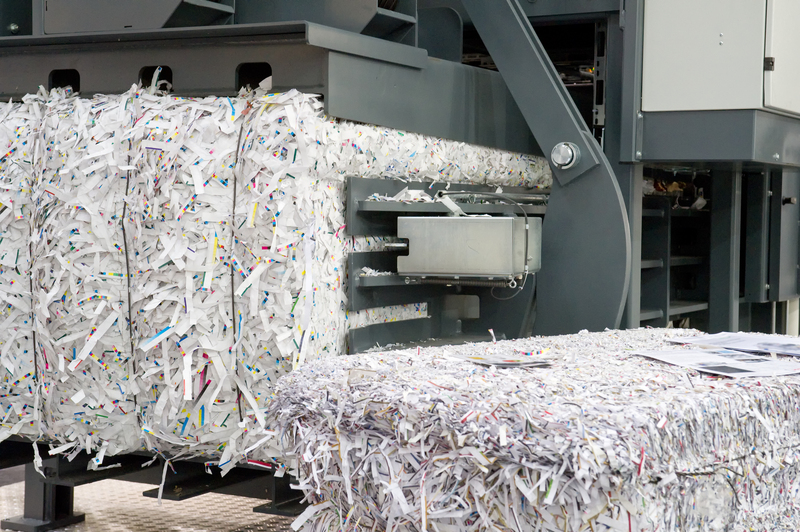Posted on 23/06/2024
In today's fast-paced world, waste disposal has become an urgent and challenging issue. With the increasing amount of waste being generated every day, efficient waste management has become a top priority for individuals and businesses alike. One of the main decisions to be made in waste disposal is whether to opt for on-demand waste disposal or restricted skip placement. In this article, we will explore the pros and cons of both these options and provide some valuable tips and takeaways for making a well-informed decision.
What is On-Demand Waste Disposal?
On-demand waste disposal is a service that allows you to schedule a one-time pickup of your waste whenever needed. This option is usually available for both residential and commercial properties. It involves contacting a waste disposal company and arranging for them to come and collect your waste at a time that suits you.
With on-demand waste disposal, you have the flexibility to choose when you want your waste to be removed, rather than having a designated schedule or collection day. This can be particularly useful for businesses that may generate varying amounts of waste throughout the week.

What is Restricted Skip Placement?
Restricted skip placement, also known as regular scheduled collections, involves renting a skip bin to be placed on your property for a specified period. The size of the skip bin can vary depending on your needs, and it will be collected by the waste management company at regular intervals, usually weekly or fortnightly.
This option provides a more structured approach to waste removal and is ideal for those with predictable amounts of waste generation. It also allows for better planning and budgeting as you know exactly when your skip bin will be collected and replaced.
The Pros of On-Demand Waste Disposal
- Flexibility: As mentioned earlier, on-demand waste disposal offers the flexibility of scheduling pickups at your convenience.
- Cost-Effective: If you do not generate a significant amount of waste on a regular basis, on-demand waste disposal can be more cost-effective compared to renting a skip bin.
- Suitable for Varying Waste Amounts: For those who do not have a predictable amount of waste, on-demand disposal is an excellent option as you only pay for what you need.
The Cons of On-Demand Waste Disposal
- Inconvenience: As this service involves scheduling pickups each time, it may become an inconvenience if you have constant waste generation.
- Limited Availability: On-demand waste disposal may not be available in all areas, limiting your options.
- Higher Cost for Larger Waste Amounts: If you have a significant amount of waste to dispose of, the cost may be higher compared to renting a skip bin.
The Pros of Restricted Skip Placement
- Regular Collection: With restricted skip placement, your waste will be collected at regular intervals without the need for scheduling each time.
- Cost Savings: If you have a predictable amount of waste that fits into a standard size skip bin, restricted skip placement can be a cost-effective option.
- Convenient for Bulk Waste Disposal: This option is suitable for larger amounts of waste that cannot be easily disposed of through on-demand services.
The Cons of Restricted Skip Placement
- Lack of Flexibility: Unlike on-demand disposal, restricted skip placement does not offer the flexibility to schedule pickups as needed.
- Unsuitable for Varying Waste Generation: For those with varying amounts of waste, renting a skip bin may result in paying for unused space in the bin.
- Space Constraints: Placement of large skip bins can be challenging, especially in urban areas or properties with limited space.

Tips and Takeaways
Before making a decision between on-demand waste disposal and restricted skip placement, consider these tips and takeaways:
- Assess your waste generation: Evaluate the amount of waste you typically generate to determine whether it is relatively consistent or varies.
- Consider the type of waste: Some waste disposal companies have restrictions on the types of waste they accept, so be sure to check before choosing a service.
- Research local regulations: Some areas may have regulations on skip bin placement, so make sure you are aware of any restrictions in your locality.
- Get multiple quotes: To ensure you are getting the best deal, it is always wise to get quotes from multiple waste disposal companies.
Conclusion
Both on-demand waste disposal and restricted skip placement have their own set of advantages and disadvantages. The decision ultimately depends on the specific needs and circumstances of each individual or business. By considering factors such as waste generation, flexibility, cost, and space constraints, one can make an informed decision that is best suited for them. With proper research and planning, efficient waste management can be achieved through either option.
Latest Posts
Tips for Proper Disposal of Regular Waste
Garbage Cleanup Bags - Efficient Skip Substitute

































 Get a Quote
Get a Quote